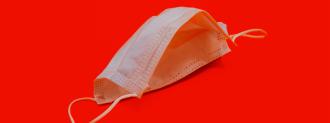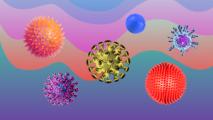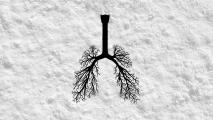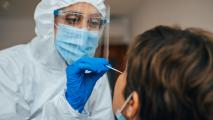Researchers from MIT and Harvard are collaborating on a face mask that produces a fluorescent signal if the wearer is infected with the novel coronavirus.
Though the project is still in the early stages, the researchers believe their coronavirus-detecting face mask could be ready for human testing within a few weeks — and ready for deployment before the end of this summer.
Building a Coronavirus-Detecting Face Mask
The team behind the coronavirus-detecting face mask isn’t starting from scratch with their research. In 2016, they published a study detailing their creation of a paper-embedded sensor to detect the Zika virus in blood samples.
The sensor itself contained a freeze-dried bit of the Zika virus’s genetic material. If the sensor encountered two things — moisture and the virus’s genetic sequence — it gave off a detectable signal.
By 2018, the scientists had proven that they could embed the sensor into cloth, plastic, and other materials. They’d also proven that they could repurpose it to detect several other viruses, including the one that causes SARS.
When the coronavirus pandemic began, the scientists quickly pivoted their research to diagnosing COVID-19, and the idea to embed the sensor in face masks — which people already have to wear — just made sense.
“When we speak, we give off a good amount of vapor,” MIT bioengineer James Collins told the Allen Institute. “If you’re infected, you also give off viral particles, not only in coughing and sneezing, but also when speaking, in small droplets and in vapor.”
Diagnosing COVID-19 with currently available tests takes about 24 hours, but the scientists’ coronavirus-detecting face mask could provide much quicker results.
“The notion is if you’re wearing a mask, that within 2 to 3 hours you could have a readout as to whether you’re infected,” Collins said.
The researchers have been spending the past several weeks testing the sensor’s ability to give off a fluorescent signal when it detects the coronavirus in saliva samples, Collins told Business Insider.
Once the sensor is ready, they’ll have to decide how they want to incorporate it into a face mask — right now, they’re debating between embedding it into a mask themselves or designing a sensor system that could be attached to existing masks.
Whichever option they choose, the goal is to have a coronavirus-detecting face mask ready for human trials within a few weeks — and then one ready for deployment within months.
“We’re targeting to get the face mask diagnostics out in the summer so they can be part of the way we can ease this crisis,” Collins told the Allen Institute.
The scientists haven’t mentioned what their coronavirus-detecting face mask might cost, but the Zika sensors had cost about $20 each in 2016. For comparison, the CDC’s standard coronavirus test costs about $36.
Diagnosing COVID-19 on the Fly
Once the scientists deploy their coronavirus-detecting face mask, Collins envisions officials using handheld fluorometers, which cost about a dollar, to conduct mask scans in public as a more accurate alternative to temperature scans.
“As we open up our transit system, you could envision it being used in airports as we go through security, as we wait to get on a plane,” he told Business Insider.
The notion is if you’re wearing a mask, that within 2 to 3 hours you could have a readout as to whether you’re infected.
James Collins
Essential workers and people regularly exposed to the coronavirus could conduct their own checks, taking off their masks periodically to scan for the signal.
Members of the general public could do the same, and hospitals could use the masks as a pre-screening tool for people waiting to be tested for COVID-19.
“If you had an inexpensive mask, you could envision having widespread distribution, and using the masks to diagnose those individuals who are at the early stages of infection who are yet to be symptomatic,” Collins told the Allen Institute.
We’d love to hear from you! If you have a comment about this article or if you have a tip for a future Freethink story, please email us at tips@freethink.com.






